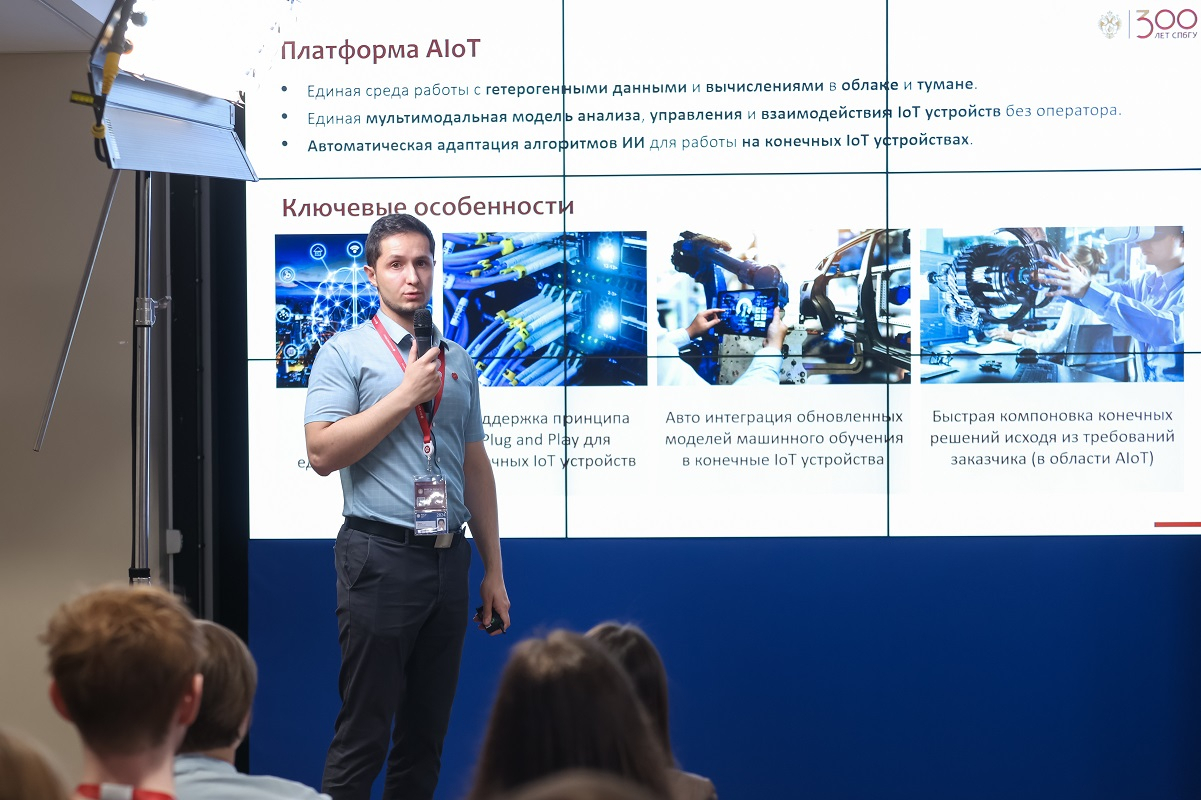St Petersburg International Economic Forum 2024: St Petersburg University AI expert discusses the future of smart home technology
Ovanes Petrosyan, Director of the St Petersburg University Centre for Artificial Intelligence and Data Science, took part in the discussion within the St Petersburg International Economic Forum Youth Programme "AI Journey: A Journey into the World of Artificial Intelligence". He talked on how to train a smart home to inform the owner about events during their absence, and how else artificial intelligence technology can be effectively applied.

The past two years have been ground breaking for the advancement of artificial intelligence technology. Previously, AI primarily addressed automation tasks and aided in eliminating mundane routines, such as facial and document recognition. However, with the recent surge in generative AI model development, it is now encroaching on creative human tasks by generating paintings, music, and videos from concise text queries.
Semen Budenniy, Managing Director and Head of the Advanced AI Technologies Department at Sber, Scientific Consultant at Artificial Intelligence Research Institute, and Candidate of Physics and Mathematics. During the meeting, he informed the forum participants about an upcoming trend in this field, the development of interactive AI. Formerly, users interacted with AI tools through queries, where they would have to input text for a specific task or generate a particular image. Presently, AI has the ability to anticipate user requirements and address them with some level of autonomy.
The Centre for Artificial Intelligence and Data Science has been established at St Petersburg University, with the aim of developing and implementing large-scale self-organising adaptive and distributed digital platforms for artificial intelligence of things and industrial applications of this technology in the digital industry.
Such systems will have the capability to interact with multiple services concurrently that an individual utilises, including email, a calendar, an app for tracking or monitoring calorie intake, smartwatches, and smart speakers, encompassing smart home systems overall. This feature will enable to address issues comprehensively and better cater to human needs. One of the most promising sectors influenced by this trend will be the AIoT — the Artificial Intelligence of Things.
"The AIoT has emerged as a prevalent trend in the application of artificial intelligence technologies in recent years, over the past two or three years, despite this technology being omnipresent in our daily lives," said Ovanes Petrosyan, Doctor of Physics and Mathematics, Professor, Director of the St Petersburg University Centre for Artificial Intelligence and Data Science. "Its potential applications encompass smart home systems as well as industrial enterprises — such as for monitoring and analysing industrial equipment and sensor systems: water, gas, heat meters, smoke, and lighting sensors."
"Security continues to be a paramount concern in technological advancement: how can we ensure that only the house or enterprise owners can access the data repository? Another significant query is how to develop a user-friendly interface for individuals to interact with their smart home or enterprise utilising extensive language models."
The University houses the Research and Education Centre "Mathematical Robotics and Artificial Intelligence", which brings together scientists from St Petersburg University involved in research in the areas of intelligent control, mathematical robotics, and educational robotics. One of the projects involved developing a hardware and software solution to protect drones from cyber-attacks.
This is precisely the challenge that experts at the St Petersburg University Centre for Artificial Intelligence and Data Science are addressing today. In December 2023, St Petersburg University emerged victorious in the All-Russian competition for government support to establish an industry research centre focused on artificial intelligence for the years 2024 — 2026. A key objective of the project is to establish a multimodal AIoT platform, which serves as a unified digital environment for aggregating and processing various types of information.
"We often hear about multimodality in language systems, but it is also vital in the Internet of Things. Why? The data sources in the smart home system are diverse: they can include a video sequence, temperature data, user voice, and much more. The multimodal platform enables the user to interact with the AIoT system: analysing abnormal behaviour, assigning tasks, or, for instance, inquiring about events at home during their absence. The significance and innovation of this technology lie in the creation of a unified data repository, processing it uniformly, and impacting the system consistently", stated Ovanes Petrosyan.
Presentations were also made by: Alexey Osadchy, Director of the Institute for Cognitive Neuroscience and the Centre for Bioelectric Interfaces at the National Research University ‘Higher School of Economics’ (HSE University), Leading Research Associate in Artificial Intelligence Research Institute; and Oleg Rogov, Senior Research Associate and Head of the Trusted and Secure Intelligent Systems group at Artificial Intelligence Research Institute, and Research Associate at Skoltech Computational Intelligence Laboratory.

